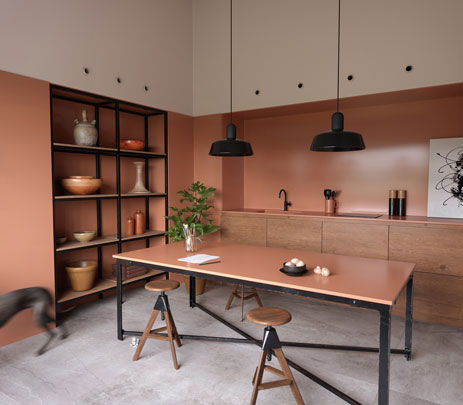Want to start the summer with a fresh, updated, modern kitchen? Liz Connor hears spend-smart tips from the experts.
Full-scale kitchen renovations can be expensive, which is why it’s important to make sensible, practical choices during the planning stage, that you won’t regret in the long-run.
While it’s tempting to opt for style over substance, the kitchen is arguably the most important room in the house, and for many families, it’s a space that needs to function as an office for homeworkers, an entertaining hub and a stand-up breakfast spot.
Consider these tips when planning your revamp for a space that’s both beautiful and functional…
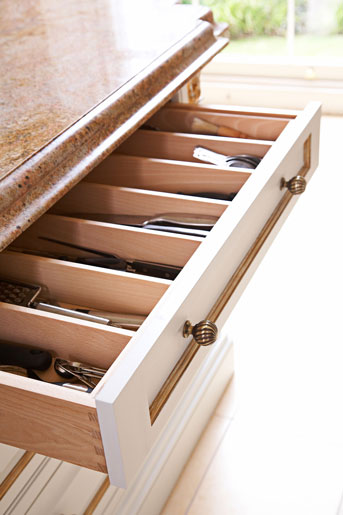
1. Suss out your storage needs early on
“If you’re partial to a crockery collection or two and have a pantry bursting with exotic ingredients, storage is going to be particularly important,” says Stephen Lynskey, head designer at Hammonds Kitchens (hammonds-uk.com). “What many people don’t realise is that storage options are decided right at the beginning of a kitchen plan, when the blueprint is being mapped out.
“Think about whether you need more drawers or cupboards, whether a display unit is specifically important and how big your pantry needs to be at this stage, to avoid disappointment later down the line.”
2. Lighting is really important
“Lighting is so important when creating a cosy atmosphere in a kitchen. I recommend focusing on three different kinds when creating your perfect setup: top lighting, task lighting and ambient lighting,” advises Lynskey. “All three need to come together perfectly to create the mood you find most relaxing.
“Thinking about where to have shadows and where to cast light can have a surprisingly large effect on the feel of a kitchen. Aim to shed light on the parts of the kitchen you will use regularly, such as the cooker and worktops, but play with shadows in the rest of the space to create an atmospheric and zen place to relax.”
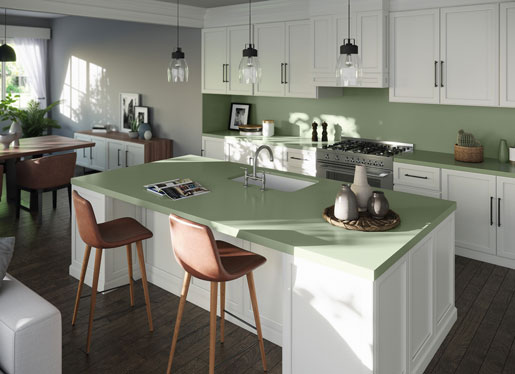
3. Opt for matt cupboards if you have small children
Lynskey continues: “Nobody wants jammy hands all over their kitchen cabinets. Choose a matt finish as opposed to gloss, as they are easier to clean and disguise visible marks better.
“Matt also has a timeless appeal, so your kitchen will remain fashionable for years to come.”
4. Go for practical materials
Laura Davie, marketing manager for Cosentino UK (cosentino.com) says: “Consider a kitchen surface that’s suited to your lifestyle and the way in which you use the kitchen.
“For instance, keen cooks will benefit from a heat and scratch resistant surface, such as a composite surface. It’s ideal for those wanting to recreate a specific look, such a marble or wood, without wanting to worry about the hassle of maintenance.
“As for splashbacks, composite surfaces offer the opportunity to use a large, single slab splashback, making a real design centrepiece, while being easier to clean with no awkward tile grouting.”
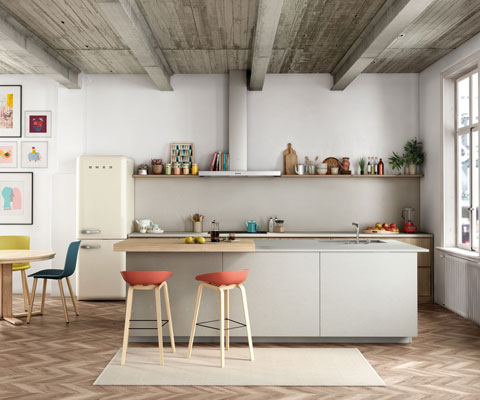
5. L-shared islands are great if you like socialising in your kitchen
“If you’re the type of household that loves having gatherings in your home, thinking about elements such as seating in the kitchen, is essential,” says Lynskey.
“Kitchen islands are a great opportunity to create a sociable space, but rather than having seating down just one side, why not opt for two sides so that your guests can face one another when socialising? For this, I recommend an ‘L’ shape, rather than the standard square. ”
6. Get an expert involved
Bella Glenn, design expert at Benchmarx Kitchens And Joinery (benchmarxkitchens.co.uk) says: “I would always recommend getting an expert planner involved in your kitchen design early on, to ensure you maximise the features that are important to you.
“There’s a wealth of knowledge available at kitchen retailers, who are best placed to discuss ways to achieve a bespoke look. Many manufacturers will have options available that can replicate a look at a range of price points, so if you have a style in mind, then it’s certainly worth talking this through.”
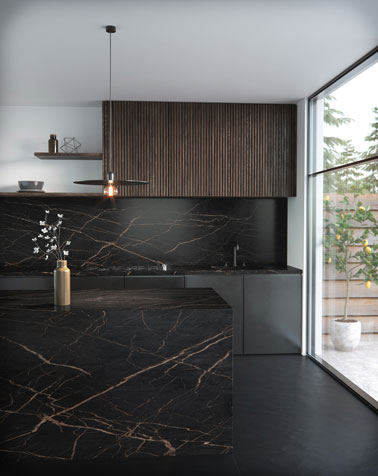
7. Accessibility matters
“Accessibility is of utmost importance when designing a kitchen for older clients, or those with elderly relatives,” stresses Lynskey. “Doorknobs may prove troublesome for arthritic hands, so larger handles that can be easily grasped are a better option. Soft closing doors and drawers make for one less thing to worry about and give the kitchen a luxurious feel.”
He adds: “Lighting also needs to be a key consideration, as it must be bright, easy to find and operate. For this, opt for a one-switch policy that controls all lighting, to avoid confusion. “

